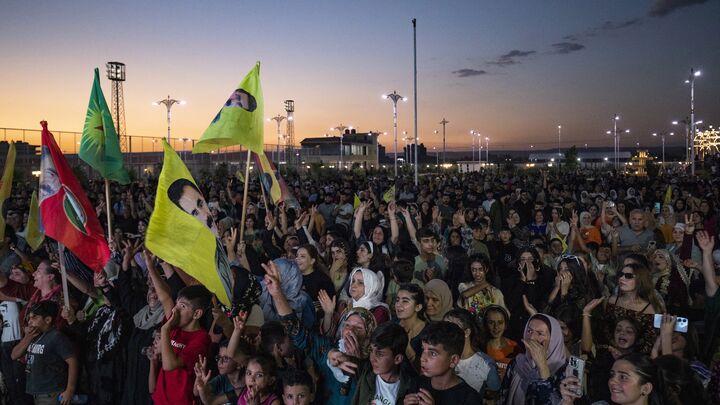In a moment that could reshape decades of conflict, the Kurdistan Workers’ Party (PKK) has announced that it is no longer pursuing the creation of an independent Kurdish state. This shift, declared by the group’s imprisoned leader Abdullah Öcalan, coincides with a disarmament ceremony set to take place in the Kandel mountains of northern Iraq, a long-standing PKK stronghold.
Independent researcher Mariam Jooma Çarikçi described the move as a significant ideological transformation, both locally and regionally. “This announcement is extremely important particularly because it’s been at the core of domestic repression around terrorism and laws around Kurdish organisations, but also the regional impact because the PKK is not just confined to Turkey but has branches in Syria, Iran and northern Iraq.”
SMread: Remembering Srebrenica Victims 30 Years On
A move towards political inclusion
The PKK has been involved in armed conflict with Turkey for over forty years. More than 40,000 lives have been lost, and tensions continue to affect the Kurdish populations spread across four nations. The group’s new position, abandoning the idea of a separate Kurdish state, suggests a shift towards seeking rights and recognition within existing state structures.
For many, this moment brings hope. But it also raises questions about timing and intent. Öcalan’s influence, while still significant, is not absolute. Mariam cautioned, “Abdullah Öcalan is not a monolith and the organisation is not homogeneous. While he has loomed large over the organisation for over 40 years, his influence has limits.”
Even within the PKK, not everyone supports the disarmament. Younger fighters and field commanders, particularly those active in Syria, may resist. “We’ve seen the decentralisation of military field commanders in the Kandel mountains,” she added. These internal differences may make the peace process fragile.
Another key point raised by Mariam is the frequent confusion between the PKK and the wider Kurdish identity. “The PKK is an organisation that has been designated as a terrorist organisation but it is different from the Kurdish population in general. The conflation of the PKK as being representative of all Kurds is incorrect.”
SMread: PSA Demands Permanent Gaza Ceasefire Amidst Ongoing Negotiations
Regional complexity and foreign contradictions
The PKK’s shift has also drawn attention to the double standards of foreign powers. While Turkey, the US and the EU all list the PKK as a terrorist group, its Syrian wing, the YPG, has received Western backing in the fight against ISIS. This inconsistency has not gone unnoticed. “We are confronted with the hypocrisy of the West. The PKK, despite being considered a terrorist organisation, has still been supported financially and organisationally because they help the destabilisation of the region, which is one of the aims of those actors.”
Support for the PKK has declined sharply in recent years among Kurds themselves. Once viewed as a symbol of resistance, the group is now seen by many as outdated and politically isolating. “Support for the PKK has significantly declined. The Kurdish population themselves have become weary of the PKK’s politics,” said Mariam.
Israel’s historical involvement with the PKK was also brought into question. While once providing military support, Israel now faces growing criticism from Kurdish voices within the movement. Öcalan recently warned against Kurdish manipulation by foreign powers, suggesting a shift in future alliances and a reconsideration of political strategy.
Despite signs of reconciliation, such as Turkey allowing Kurdish to be used more freely in public spaces and releasing some PKK prisoners, many remain cautious. The ceremony in the Kandel mountains may symbolise disarmament, but whether it brings real peace remains to be seen.
Mariam summed it up clearly. “Putting down these arms symbolically is a way of saying, you know, it’s not just writing or signing off on a piece of paper, but there’s actually, you know, you can see them physically giving up arms.”
As the ceremony approaches, the region stands at a crossroads. The announcement brings an opportunity for peace, but only if managed with care. “We have to understand that it’s going to be a process, but goodwill must be created by these symbolic steps,” said Mariam.
Whether the PKK’s transformation will lead to lasting change or simply shift the theatre of conflict remains uncertain. What is clear is that this is not just a moment for Kurdish politics. It is a critical test of regional cooperation, international sincerity and the power of symbolism in a region tired of war.
Image: DELIL SOULEIMAN/AFP via Getty Images
